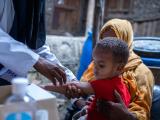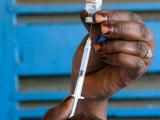Jul 31, 2003 (CIDRAP News) – Congress's General Accounting Office (GAO) warned yesterday that a major resurgence of SARS (severe acute respiratory syndrome) could cause overcrowding and shortages of personnel and equipment in hospitals.
Federal, state, and local health officials are working on guidelines and recommendations to prepare for a possible SARS resurgence, but implementing the recommendations could prove difficult if the disease returns in a big way, according to Marjorie E. Kanof, GAO's director of clinical and military healthcare issues. Kanof gave her assessment in testimony prepared for the Senate Governmental Affairs Permanent Subcommittee on Investigations.
The World Health Organization called off its global SARS alert Jul 5. But because SARS is caused by a coronavirus, a viral family that also causes some common colds, many think the disease could return next winter, Kanof noted.
The difficulty of diagnosing SARS could lead to hospital overcrowding, she stated. "Because of the inability to precisely determine if someone has SARS, many people may be treated who do not have the virus. In the event of a large-scale outbreak, this imprecision may result in severe overcrowding in health care settings—especially if a SARS resurgence occurs during a peak season for another respiratory disease like influenza."
Public health officials told the GAO that a major SARS outbreak could lead to the designation of whole hospital wards as SARS isolation facilities and the designation of separate SARS hospitals.
Kanof cited a GAO report issued in May that said most hospitals lack the capacity to respond to large-scale infectious disease outbreaks. "Few hospitals have adequate staff, medical resources, and equipment, such as N-95 respirators, needed to care for the potentially large numbers of patients that may seek treatment," she said.
In a survey of 2,000 hospitals in 2002, the GAO found that most were short on equipment and supplies for dealing with infectious disease outbreaks. "Half the hospitals surveyed had, for every 100 staffed beds, fewer than 6 ventilators, 3 or fewer personal protective equipment suits, and fewer than 4 isolation beds," Kanof stated.
Health officials also predicted a shortage of trained personnel, including epidemiologists, who would be needed if SARS resurged, according to Kanof. Contact tracing and the monitoring of people in isolation and quarantine would add to the strain on human resources, she said.
Her report says the Centers for Disease Control and Prevention has convened a task force of infection control experts to develop and publish SARS-specific guidelines and recommendations by September.
Sen. Norm Coleman, R-Minn., chair of the Senate subcommittee, called for preparation of regional and national plans for dealing with a major SARS outbreak. "We saw in Toronto that SARS can quickly overwhelm even a modern health care system if the first cases are not quickly contained. When this happens, regional and national resources must be available to fill in the gap," Coleman said in a statement opening a subcommittee hearing on the issue yesterday.
Coleman also called for efforts to make sure that local health officials and physicians remain alert for SARS cases and that citizens receive the information they need to respond intelligently if or when SARS reappears in their community.


















